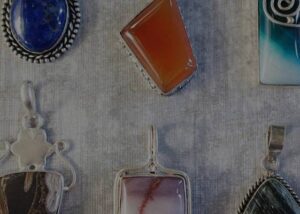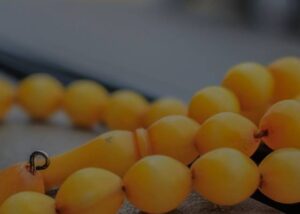Quran
Hadith
Islamic Text
بِسْمِ اللَّهِ الرَّحْمَنِ الرَّحِيمِ
In the Name of Allah Most Merciful Most Kind
Short Answer
Taweez is allowed (Halal) in Islam if it is restricted to Quranic verses, Sunnah supplications and the names of Allah (Most High). However, if it contains numbers, symbols, boxes, unclear writing or the like then it is not permitted (Halal).
عُقْبَةَ بْنَ عَامِرٍ، رَضِيَ اللَّهُ عَنْهُ يَقُولُ: سَمِعْتُ رَسُولَ اللَّهِ صَلَّى اللهُ عَلَيْهِ وَسَلَّمَ يَقُولُ: مَنْ عَلَّقَ تَمِيمَةً فَلَا أَتَمَّ اللَّهُ لَهُ وَمَنْ عَلَّقَ وَدَعَةً فَلَا وَدَعَ اللَّهُ لَهُ. هَذَا حَدِيثٌ صَحِيحُ الْإِسْنَادِ وَلَمْ يُخَرِّجَاهُ. وقال الذهبي: صحيح
Uqbah bin Amir (May Allah be pleased with him) said: I heard the Messenger of Allah ﷺ saying: Whoever wears an amulet (Taweez), may Allah not complete it for him. And whoever wears a protective pearl, may Allah not make it a protection for him. (Mustadrak al-Hakim, 7501. Imam al-Dhahabi concurred that it is authentic).
This Hadith is also in: Ahmad (17404); Ibn Hiban (6086); Hakim (8289); and others. Further, the narration clearly warns against wearing a Tameemah, which is a Taweez. A Taweez in an amulet, meaning something which is worn for protection or cure from ailments. As such, a Taweez is not recognised by medical science. Rather, this is a spiritual cure or means of protection. Consequently, spiritual cures must have a basis in Quran and Sunnah, otherwise they are not permitted.
Types of Taweez
Amulets (Taweez) are sometimes considered acceptable by Muslim scholars and sometimes prohibited. This is dependent upon the definition. Sometimes a Tameemah (Taweez) is defined as something that contains only Ayat of the Holy Quran, Sunnah supplications and the like. Therefore, in such cases, this definition of Taweez is deemed permissible.
(وَالتَّمَائِمَ): جَمْعُ التَّمِيمَةِ وَهِيَ التَّعْوِيذَةُ الَّتِي تُعَلَّقُ عَلَى الصَّبِيِّ أَطْلَقَهُ الطِّيبِيُّ، لَكِنْ يَنْبَغِي أَنْ يُقَيَّدَ بِأَنْ لَا يَكُونَ فِيهَا أَسْمَاءُ اللَّهِ تَعَالَى، وَآيَاتُهُ الْمَتْلُوَّةُ، وَالدَّعَوَاتُ الْمَأْثُورَةُ. (مرقاة المفاتيح شرح مشكاة المصابيح)
(Tamaim): Is the plural of Tameemah. It is the amulet (Taweez) that is placed upon a boy. It was mentioned unconditionally by al-Tibi. However, it should be restricted to that which does not contain other than the names of Allah (Most High), His recited verses, and the narrated supplications. (Imam Ali bin Sultan al-Qari, Mirqaat).
On other occasions, a Tameemah (Taweez) is understood to refer to something that contains writing and symbols that are outside of the Islamic tradition. Therefore, in such cases, this definition of Taweez is prohibited. As such, it is important to specify the type of Taweez being spoken about before presenting a legal ruling.
(وَعَقْدَ التَّمَائِمِ): جَمْعُ تَمِيمَةٍ، وَالْمُرَادُ بِهَا التَّعَاوِيذُ الَّتِي تَحْتَوِي عَلَى رُقَى الْجَاهِلِيَّةِ مِنْ أَسْمَاءِ الشَّيَاطِينِ وَأَلْفَاظٍ لَا يُعْرَفُ. (مرقاة المفاتيح شرح مشكاة المصابيح)
(Tamaim): Is the plural of Tameemah. It refers to amulets (Taweez) that contain pre-Islamic invocations. Such as the names of devils and unknown words. (Imam Ali bin Sultan al-Qari, Mirqaat).
A Sahabi used Taweez
The fact that the warning against Taweez (Tameemah) does not apply to every Taweez is further supported by the fact that the great Sahabi Abdullah bin Amr bin Aas (May Allah Most High be pleased with them both) used to put Taweez on his young children. Subsequently, Imam Ali al-Qari used this as proof for the permissibility of Taweez:
فِي رَقَبَةِ وَلَدِهِ وَهَذَا أَصْلٌ فِي تَعْلِيقِ التَّعْوِيذَاتِ الَّتِي فِيهَا أَسْمَاءُ اللَّهِ تَعَالَى. (مرقاة المفاتيح شرح مشكاة المصابيح)
Around the neck of his child. This is a proof for hanging amulets that contain the Names of Allah Most High. (Imam Ali bin Sultan al-Qari, Mirqaat).
The Hanafi position
Based upon the evidence mentioned above and other similar narrations, the Hanafi scholars concluded that Taweez is only allowed if it is restricted to Quranic verses, Sunnah supplications and the names of Allah (Most High). Therefore, anything other than that is not permissible. For that reason, a Taweez containing numbers, symbols, boxes, unclear writing, or the like is not Halal and must not be used.
هَذَا كُله فِي تَعْلِيق التمائم وَغَيرهَا مِمَّا لَيْسَ فِيهِ قُرْآن وَنَحْوه، فَأَما مَا فِيهِ ذكر الله فَلَا نهي عَنهُ، فَإِنَّهُ إِنَّمَا يَجْعَل للتبرك لَهُ والتعوذ بأسمائه وَذكره. (عمدة القاري شرح صحيح البخاري)
This is all relevant to the wearing of Taweez and other things that do not contain Qur’an and the like. As for what contains the remembrance of Allah, it is not forbidden. Indeed that is done for the blessings and in seeking refuge by His names and his remembrance. (Imam Badr al-Deen al-Ayni, Umdatu al-Qari).
امرأة أرادت أن تصنع تعويذا ليحبها زوجها بعدما كان يبغضها ذكر في الجامع الصغير أن ذلك حرام لا يحل. (فتاوى قاضيخان)
A woman wants to use Taweez to cause her husband to love her when he dislikes her, this is Haram, not permitted. This has been mentioned in al-Jami al-Sagheer. (Imam Qadi Khan, Fatawaa Qadi Khan).
Only Quran and Hadith permitted for Taweez
The prohibition on Taweez mentioned by Imam Qadi Khan in the Nass (text) above has been repeated by later scholars too. However, Imam Ibn Abideen explained that the assumption is that other than Quranic verses, Sunnah supplications have been used in these Taweez. As a result, this has has prompted the ruling of prohibition for such Taweez.
قَالَ إنْ أَرَادَتْ امْرَأَةٌ أَنْ تَضَعَ التَّعْوِيذَ لِيُحِبَّهَا زَوْجُهَا بَعْدَمَا كَانَ يَبْغُضُهَا ذَكَرَ فِي الْجَامِعِ الصَّغِيرِ أَنَّ ذَلِكَ حَرَامٌ. (الفتاوى الهندية)
If a woman wants to use Taweez to cause her husband to love her when he dislikes her, then it is Haram, not permitted. This has been mentioned in al-Jami al-Sagheer. (al-Fatawaa al-Hindiyah).
الرقى المكروهة أمور مشتبهة مركبة من حق وباطل من ذكر الشياطين، والاستعانة بهم، والتعوذ بمردتهم. (التوضيح لشرح الجامع الصحيح)
The disliked Ruqyah is doubtful matters. Combining truth with falsehood. Making Dhikr of devils, seeking their help, and seeking refuge in their leaders. (Imam Siraj al-Deen Ibn al-Mulaqin, al-Towdeeh Sharh al-Jami al-Sahih).
قَالَ فِي الْخَانِيَّةِ: امْرَأَةٌ تَصْنَعُ آيَاتِ التَّعْوِيذِ لِيُحِبَّهَا زَوْجُهَا بَعْدَ مَا كَانَ يُبْغِضُهَا ذَكَرَ فِي الْجَامِعِ الصَّغِيرِ: أَنَّ ذَلِكَ حَرَامٌ وَلَا يَحِلُّ اهـ وَذَكَرَ ابْنُ وَهْبَانَ فِي تَوْجِيهِهِ: أَنَّهُ ضَرْبٌ مِنْ السِّحْرِ وَالسِّحْرُ حَرَامٌ اهـ ط وَمُقْتَضَاة أَنَّهُ لَيْسَ مُجَرَّدَ كِتَابَةِ آيَاتٍ، بَلْ فِيهِ شَيْءٌ زَائِدٌ قَالَ الزَّيْلَعِيُّ: وَعَنْ ابْنِ مَسْعُودٍ – رَضِيَ اللَّهُ تَعَالَى عَنْهُ – أَنَّهُ قَالَ سَمِعْت رَسُولَ اللَّهِ – صَلَّى اللَّهُ عَلَيْهِ وَسَلَّمَ – يَقُولُ: إنَّ الرُّقَى وَالتَّمَائِمَ وَالتُّوَلَةَ شِرْكٌ. (رد المحتار على الدر المختار)
He said in al-Khaniyah: A woman wants to produce Ayat of Taweez to cause her husband to love her when he dislikes her. It is mentioned in al-Jami al-Sagheer that this is Haram, not permitted.
Ibn Wahban mentioned in his Tawjeeh: It is a type of sorcery, and sorcery is forbidden (Haram). The implication is that it is not simply the writing of (Quranic) verses. Rather, there is something additional in it.
(Imam) al-Zayla’i said: It is narrated from Ibn Masoud (May Allah Most High be pleased with him) that he said I heard the Messenger of Allah ﷺ saying: Indeed Ruqyah, Taweez and love-sorcery are Shirk. Abu Dawud and Ibn Majah narrated it. (Imam Muhammad Ameen Ibn Abideen, Radd al-Muhtar).
Conclusion
It is certainly best not to wear Taweez since it is not the practice of our beloved Prophet ﷺ. Rather, the Prophet ﷺ practiced and advised Ruqyah. This practice is to recite Quranic verses and Sunnah supplications over oneself – not to wear them. However, this does not mean Taweez is Haram. Taweez is only permitted when it contains Quranic verses and Sunnah supplications. Therefore, anything other than this will render the Taweez prohibited such as, for example: numbers; shapes; symbols; boxes; or unclear writing.
And Allah Most High Knows Best.
–Answered by Shaykh Noorud-deen Rashid (23.11.23)






